5 September 2018, Kigali – The Inter-Governmental Authority on Development (IGAD), the Food and Agriculture Organization of the United Nations (FAO) and the World Meteorological Organization (WMO) have launched a new project that aims to buttress the capacities of smallholder farmers in Ethiopia, Kenya and Uganda to adapt and be more resilient to the weather variability and climate change.
With USD 6.8 million funding from the Adaptation Fund, the three-year program called, “Agricultural Climate Resilience Enhancement Initiative (ACREI),” will develop the capacities of pastoral and agro-pastoral communities, who are extremely vulnerable to weather variability and climate change, to understand and appropriately use climate information to be more resilient to the negative impacts of climate change.
Speaking at the program launch, Guleid Artan, Director of IGAD Climate Prediction and Applications Centre (ICPAC), noted that weather-related challenges and hazards severely impacted on the quantity and quality of food; and thus, posed a threat to the livelihoods of farmers and their dependents.
Pastoral and agro-pastoral communities in the Horn of Africa, are extremely vulnerable to climate variability and climate change, where they experience droughts and floods more frequently in recent years. The risk of losing their livelihood assets due to climatic risks has been real. Enhancing the technical and financial capacities of these communities to cope and adapt to climate change and variability is thus crucial for their survival.
Cyril Ferrand, Resilience Team Leader at FAO Subregional Office for Eastern Africa, raised concern over increasing loss of agricultural production to drought. “Drought affects the agriculture sector disproportionately, relative to other sectors. Over 80 percent of all damage and loss caused by drought is absorbed by agriculture, causing food insecurity and pushing malnutrition on a reversal trend”, he said. Pragmatic action is crucial to build capacities of stallholder farmers against climatic shocks, so as to advance sustainable agricultural production, he added.
The ACREI project is aligned to national, regional and global goals including Africa agenda 2063, Sustainable Development Goals particularly, Goal 2 (Zero Hunger) and Goal 13 (climate action).
“We are eager to be linking climate information to the local level in order to build resilience and adaptation in the agricultural sector,” said Robert Stefanski, Chief Agricultural Meteorology Division at WMO. He further noted that the partnership among WMO, FAO and ICPAC will be very crucial in building resilience in the targeted countries.
The project was launched at the sidelines of the 50th Greater Horn of Africa Climate Outlook Forum (GHACOF) held in Kigali, Rwanda (30-31 August 2018). It provided an opportunity to raise awareness among stakeholders about the ACREI initiative as well as engage stakeholders in a discussion on its implementation strategy.
